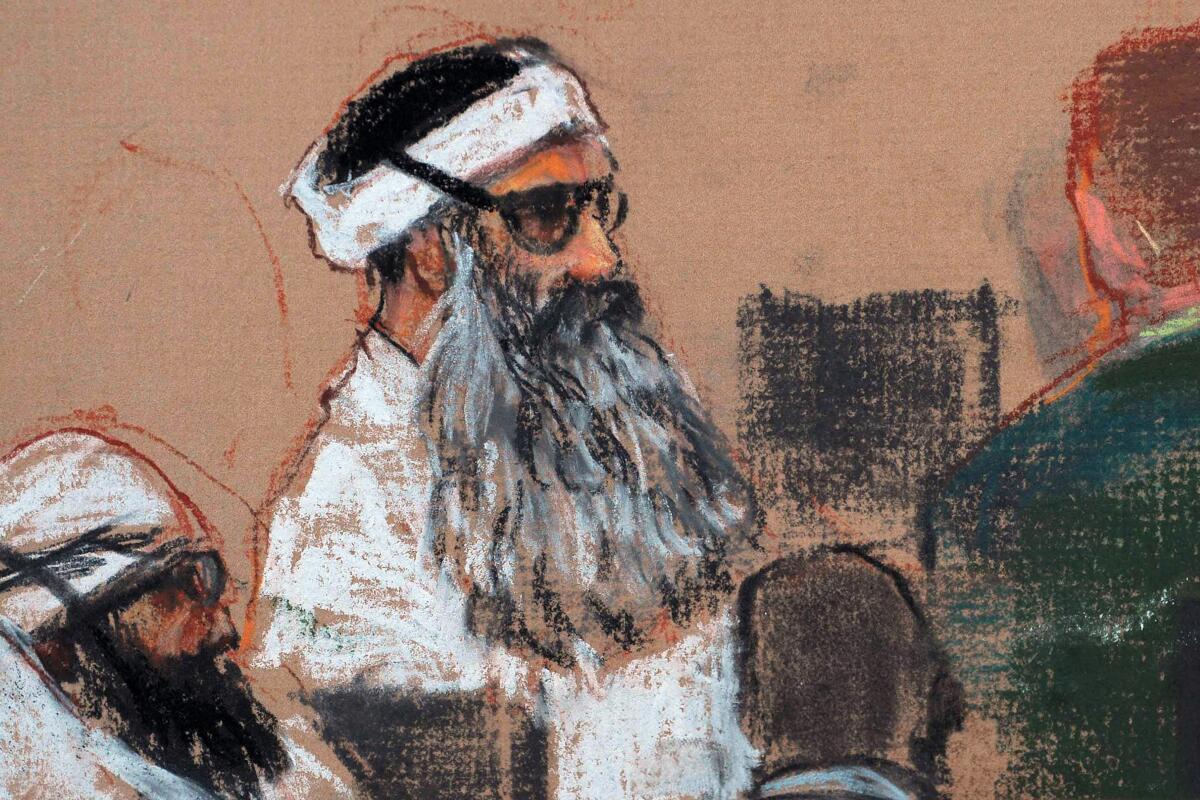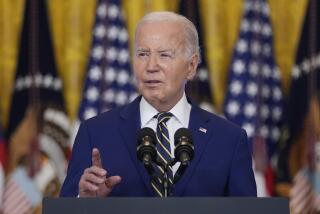Defense secretary overrides plea deals for Khalid Shaikh Mohammed and two other 9/11 defendants

WASHINGTON — Defense Secretary Lloyd J. Austin III on Friday overrode a plea agreement reached this week for the man accused of plotting the Sept. 11, 2001, attacks and those of two other defendants, reinstating them as death penalty cases.
The move comes two days after the U.S. military commission at Guantanamo Bay, Cuba, announced it had reached plea deals with Khalid Shaikh Mohammed and two accused accomplices, Walid bin Attash and Mustafa Hawsawi, in the attacks.
Overseen by the military commission, the cases of five defendants in the Sept. 11 attacks have been stuck in pretrial hearings and other preliminary court action since 2008. The torture that the defendants underwent while in CIA custody slowed the cases and left the prospect of full trials and verdicts uncertain, in part because of the inadmissibility of evidence linked to the torture.
Letters sent to families of the nearly 3,000 people killed in the Al Qaeda attacks said the plea agreement stipulated the three would serve life sentences.
Austin wrote in an order released Friday night that “in light of the significance of the decision,” he had decided that the authority to make a decision on accepting the plea agreements was his. He nullified the agreements.
Some relatives of the attack’s victims had condemned the deals for cutting off any possibility of full trials and possible death penalties. Republicans were quick to fault the Biden administration, although the White House said after the deals were announced that it had no knowledge of them.
Khalid Shaikh Mohammed and two others are expected to enter guilty pleas at the U.S. military commission at Guantanamo Bay, Cuba, as soon as next week.
Mohammed, whom the U.S. describes as the main plotter of the attack that crashed hijacked passenger planes into the World Trade Center, the Pentagon and a Pennsylvania field, and the other defendants had been expected to formally enter their pleas as soon as next week.
J. Wells Dixon, a staff attorney at the Center for Constitutional Rights who has represented defendants at Guantanamo as well as other detainees there who have been cleared of wrongdoing, had welcomed the plea bargains as the only feasible way to resolve the long-stalled and legally fraught 9/11 cases.
Dixon accused Austin on Friday of “bowing to political pressure and pushing some victim family members over an emotional cliff” by rescinding the plea deals.
The American Civil Liberties Union said Saturday that it plans to challenge the reversal in court, citing it in a statement as a “rash act” that “violates the law.”
Lawyers for the two sides have been exploring a negotiated resolution to the case for about 1½ years. President Biden blocked an earlier proposed plea bargain in the case last year, when he refused to offer requested presidential guarantees that the men would be spared solitary confinement and provided trauma care for the torture they underwent while in CIA custody.
A fourth Sept. 11 defendant at Guantanamo had been still negotiating on a possible plea agreement. The military commission last year ruled the fifth defendant mentally unfit to stand trial. A military medical panel cited post-traumatic stress disorder and psychosis, and linked it to torture and solitary confinement during four years in CIA custody before transfer to Guantanamo.
Terry Strada, national chair of the group 9/11 Families United, said she and other victims’ relatives she’d talked to believed the reversal was the right thing to do.
“These men deserve no mercy,” Strada said. “They certainly didn’t show any mercy to my husband or the other 2,976 who died in the attacks.”
Knickmeyer writes for the Associated Press.
More to Read
Sign up for Essential California
The most important California stories and recommendations in your inbox every morning.
You may occasionally receive promotional content from the Los Angeles Times.











